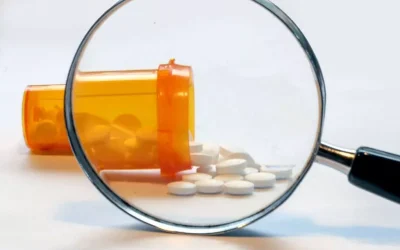Шпаргалка По Логированию На Python От Компании It Resume
December 15, 2023What’s Buyer Service? Definition & Best Practices
January 23, 2024Each detox experience may be different for each person, every time. This is why it is important to work with medical professionals to develop an individualized treatment plan. Because addiction can affect so many aspects of a person’s life, treatment should address the needs of the whole person to be successful. Counselors may select from a menu of services that meet the specific medical, mental, social, occupational, family, and legal needs of their patients to help in their recovery. For people dealing with substance use disorder, drug detox may feel intimidating or even frightening.

What happens to the brain when a person takes drugs?
- There are detox cleansing kits marketed to help avoid or reduce withdrawal symptoms.
- Medications are also available to help treat addiction to alcohol and nicotine.
- You may also find support groups in your community or on the internet.
For one, it may be more difficult for some to stay the course in their home environment, where exposure to certain people or things could trigger a relapse or return to drug use. In rare cases alcohol detox can cause delirium tremens (DT), a life threatening condition that can lead to stroke, heart attack, and death if left untreated. For these reasons, alcohol detox is usually done in a hospital, detox facility, or an alcohol rehab center. Most people turn to professional detox services, like those offered at American Addiction Centers, to make their detox experience safe and as comfortable as possible.
- While naloxone has been on the market for years, a nasal spray (Narcan, Kloxxado) and an injectable form are now available, though they can be very expensive.
- This support can help with both the physical symptoms of withdrawal and the psychological side of addiction.
- Many people don’t understand why or how other people become addicted to drugs.
- Some drugs, such as opioid painkillers, have a higher risk and cause addiction more quickly than others.
- Additionally, they minimize access to harmful influences or substances, preventing individuals from succumbing to cravings during withdrawal.
When to see a doctor
The goal of detox for pregnant women is to prevent relapse and manage pain. Unfortunately, outpatient detox tends to have lower success rates than inpatient detox. In this option, you have outside access to drugs and can skip treatment sessions, increasing your chances of relapse. Detoxing on your own without medical support can sometimes be dangerous. Talking over possible strategies and approaches to detoxing with your doctor can be an important first step in recovery.
Do You Have to Stay in Treatment for the Entire Length of Drug Detox?
America’s Best Addiction Treatment Centers 2023 – Newsweek
America’s Best Addiction Treatment Centers 2023.
Posted: Wed, 16 Aug 2023 15:27:11 GMT [source]
Remember that detox in itself does not equal addiction treatment, but it is the first component of a comprehensive treatment plan. Once you have completed detox, it’s advisable to transition to a rehab center that will help support your long-term recovery. Detox on its own is usually insufficient for a successful recovery.
Your treatment depends on the drug used and any related medical or mental health disorders you may have. Diagnosing drug addiction (substance use disorder) requires a thorough evaluation and often includes an assessment by a psychiatrist, a psychologist, or a licensed alcohol and drug counselor. Blood, urine or other lab tests are used to assess drug use, but they’re not a diagnostic test for addiction. However, these tests may be used for monitoring treatment and recovery.
An individualized treatment plan takes unique needs into account, putting people in a better position to continue their journey toward sobriety. In rapid detox, a person with a substance use disorder (SUD) is sedated with anesthesia and given medications that replace the drugs in the body. This method was originally developed for people addicted to opiate drugs like heroin and painkillers.
Seeking professional help and participating in programs designed for co-occurring addictions can significantly improve the chances of long-term sobriety. Next, you may want to consider working with a doctor and therapist to design an ongoing treatment plan. It may also be beneficial to create a support system of loved ones you trust to help you with your treatment plan. With medication-assisted treatment, certain prescriptions are given to assist with recovery and help you cope with the symptoms of detox. There are several options for going through the detox process from substances.

How Does Medical Detox Address Addiction?
Individuals seeking addiction treatment need to treat the psychological part of their addiction. They can accomplish this with counseling, support groups, or an inpatient rehab drug detox program. Contact a treatment provider to find a treatment center near you. Rapid detox is a method of removing substances from a user’s system faster than regular detox.
- Because of this, they are less likely to work on relapse prevention, possible co-occurring mental health conditions, and life planning and therefore more likely to experience relapse.
- An assisted detox program can provide a safe space for your body to rid itself of substances while also helping you build your ongoing treatment plan.
- When in doubt, talk to your doctor or an addiction specialist about the best choice for you.
- Stopping drug use is just one part of a long and complex recovery process.
- The more successful your early days in treatment, the likelier you’ll stick with the process and remain sober.
- Your symptoms may last a week or more, typically hitting their worst within hours.
- They might take more of the drug to try and achieve the same high.
